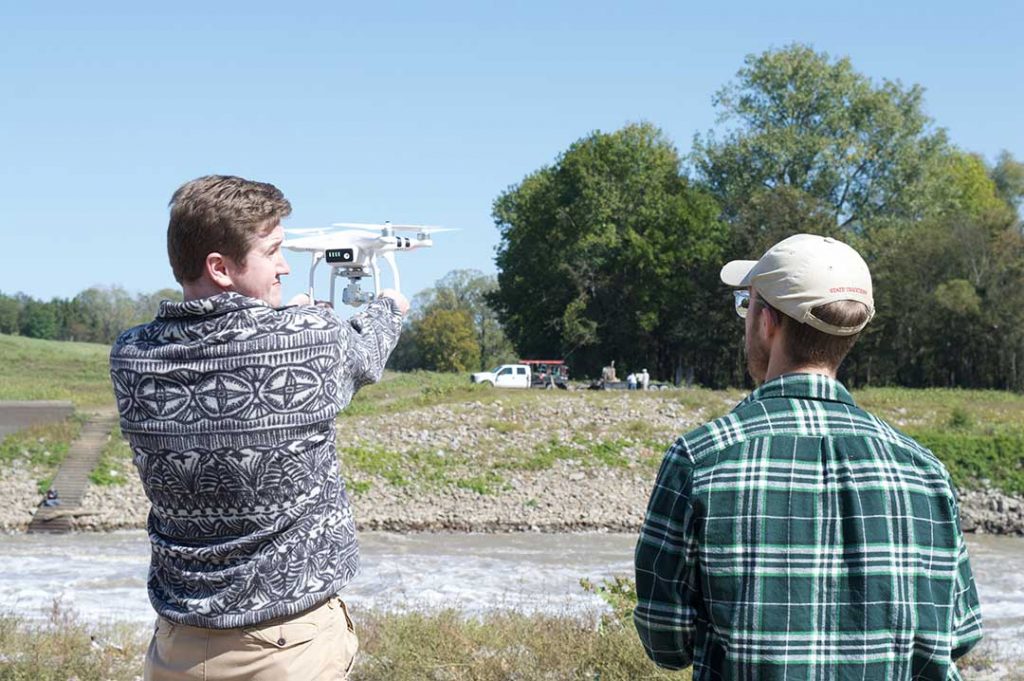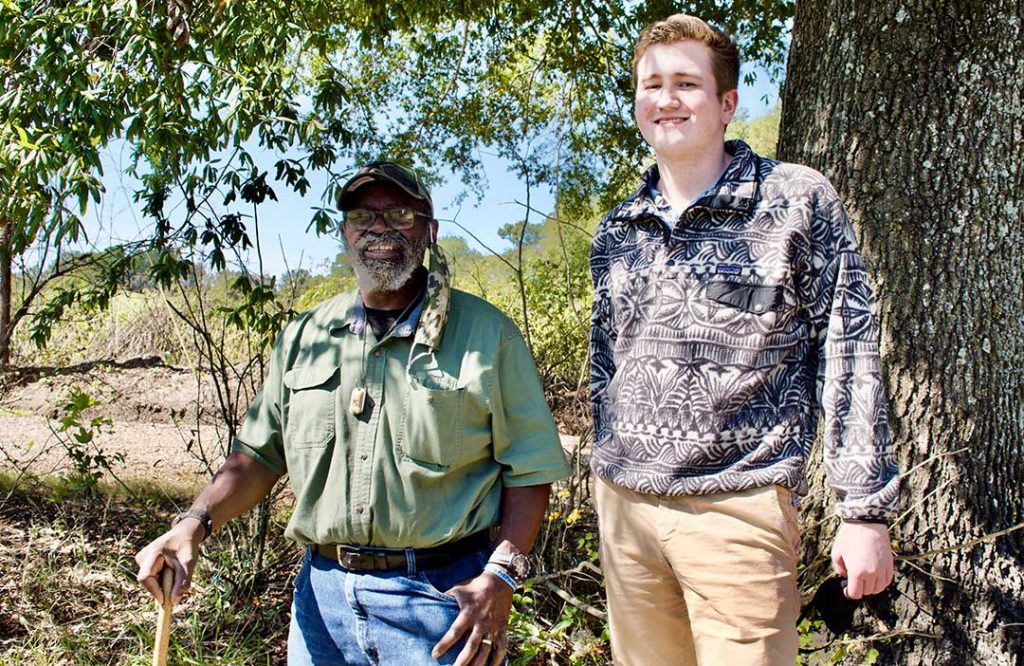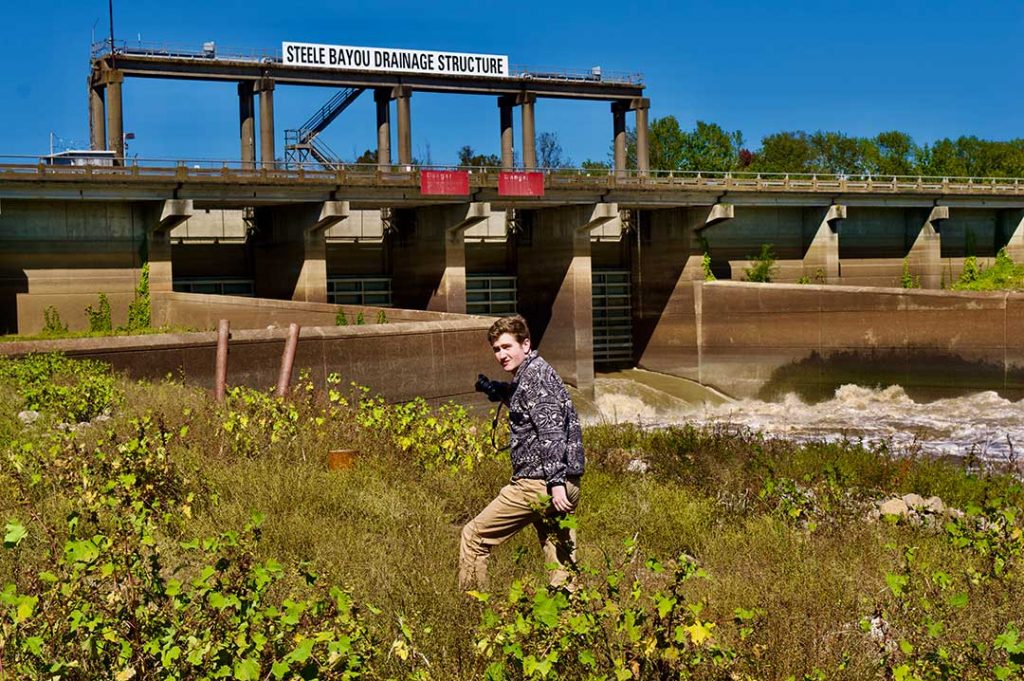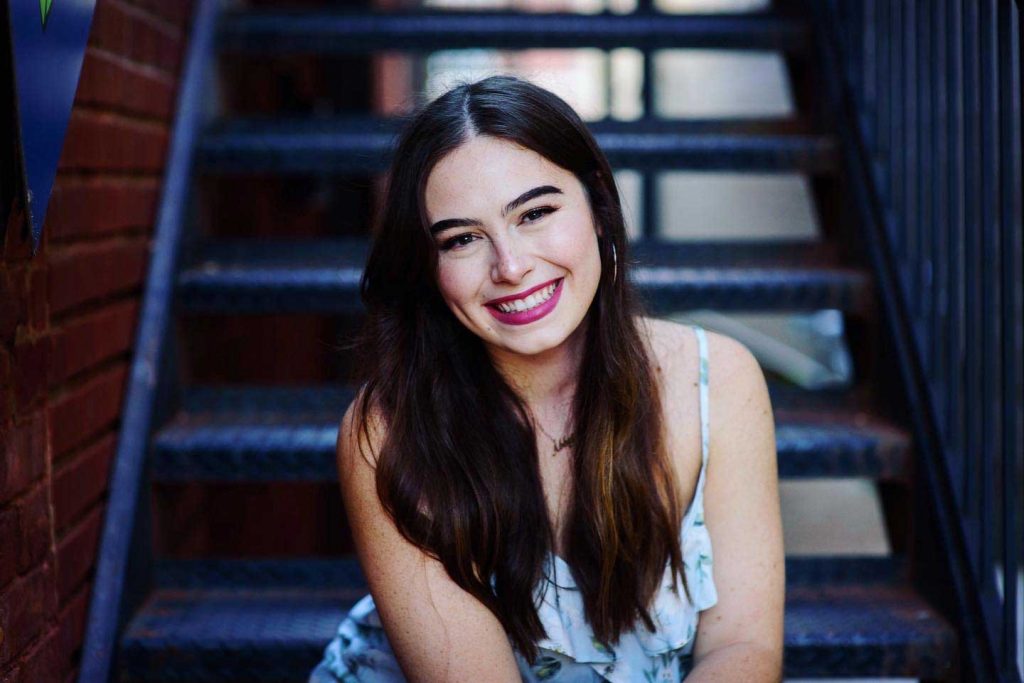A University of Mississippi School of Journalism and New Media professor will be one of the featured speakers at the upcoming TEDxUniversityofMississippi talk set for Feb. 22 at 7 p.m. inside the Ford Center for Performing Arts.
Michael Fagans, assistant professor of journalism, said he was nominated to speak and asked to create a pitch video for his TEDx talk.
“The working title for my talk is ‘Seeing the Unseen,'” he said. “I will be talking about literal blind spots that we have, societal blind spots, and how much of our vision is really in focus. I will be using examples of my work to talk about expanding how we might see each other and the world.”
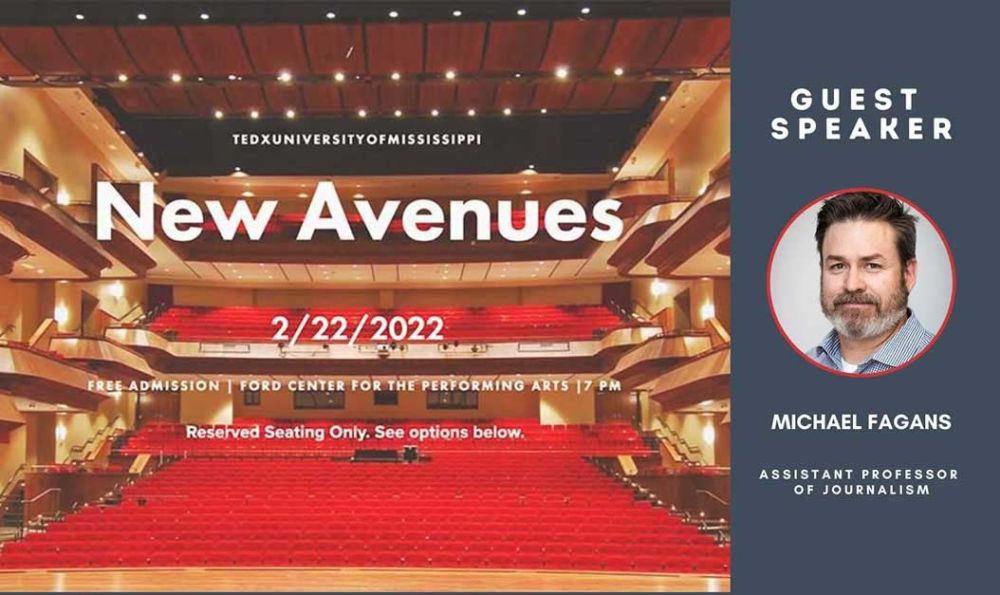
Michael Fagans, assistant professor of journalism, will be featured in the next TEDxUniversityofMississippi event Feb. 22.
The theme of this year’s event is “New Avenues.” Speakers were asked to think about what New Avenues people, communities, and organizations are exploring to optimize outcomes. What New Avenues were explored in the past that led us to our current situations? What New Avenues are being explored now that will shape our future?
“I am in the process of re-working part of the talk after giving a dry run two weeks ago to two students and their advisor,” he said. “I will be working with a colleague to edit down the images and tighten up which anecdotes carry the theme of really seeing the world for what is there.”
Fagans said he’s planning to end the talk with a quote from photographer Jay Maisel. It reads: “Seeing the world from even a two-degree difference helps you see an entirely new world.”
“I am hopeful that my talk, showing images, and telling the stories behind the images, will help attendees see the world from a new perspective, especially with the other talks by faculty and community members,” Fagans said.
Interim Dean for the School of Journalism and New Media Dr. Deb Wenger said she is delighted to see one of the school’s faculty members showcased in this venue.
“We have many dedicated teachers in our programs, and Prof. Fagans is one who brings a deep commitment to helping students think about the world and the work they do in new ways,” Wenger said. “I’m looking forward to seeing how his talk reflects this approach.”
A working photojournalist and documentary filmmaker, Fagan’s journey has taken him to the Navajo Nation, Malawi, India, Austria, Afghanistan, Scotland, Canada, the Dominican Republic, Belize and Guatemala, according to his TEDxUniversityofMississippi bio. He is also the author of three books on iPhone photography with Amherst Media.
His documentary film “The Trafficked Life” helped raise over $50,000 that was donated to 10 nonprofits working to combat human trafficking in California’s Central Valley, the bio reads. Fagans is currently in post-production on a documentary about David Sheffield, a UM alum, who staged a play on campus in partnership with Theater Oxford and the Department of Theatre & Film at UM.
TEDxUniversityofMississippi invites a diverse group of speakers to share innovative, creative, and thought-provoking talks on a different theme each year. Led by a group of student volunteers, the event shares ideas from outside Mississippi that can impact Mississippians in a positive way.
The evening of curated Talks each year is designed to spark conversation in the community and beyond. The Talks are published on the nationally and internationally browsed TEDx Youtube channel, free of charge.
To learn more about the speakers, visit https://www.tedxuniversityofmississippi.com/speakers
To learn more about the event, visit: https://www.tedxuniversityofmississippi.com/
